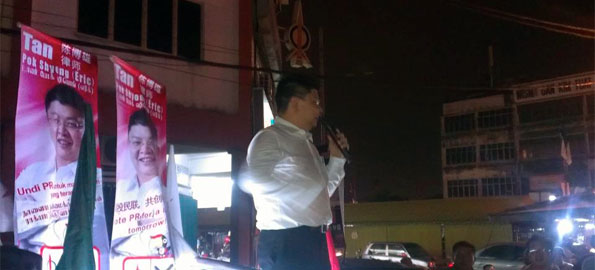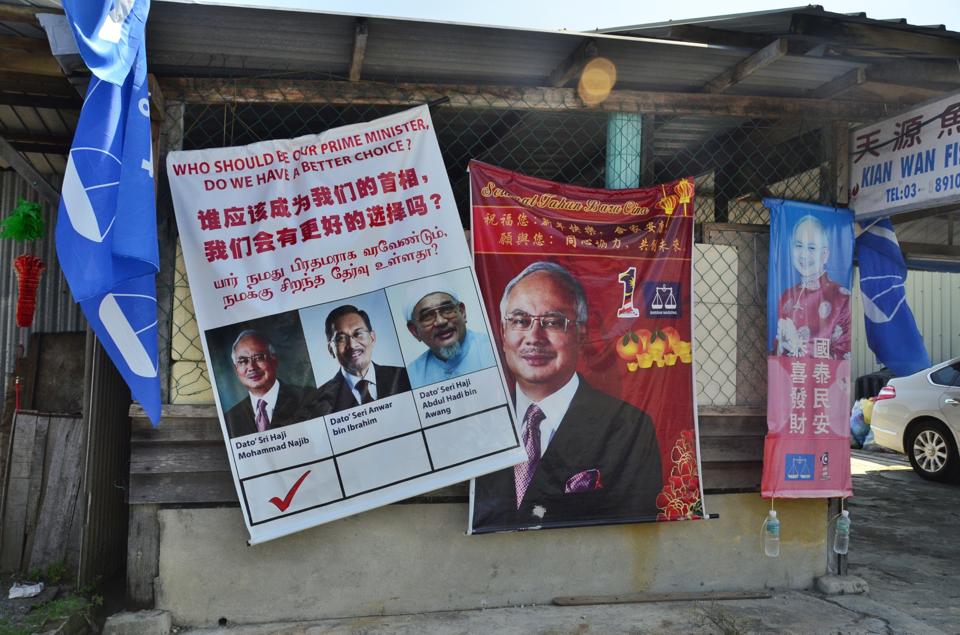Reforms needed for campaign financing
Reforms needed for campaign financing
(Full version first published in The Nut Graph on 25 April 2013)
THE 13th general election (GE13) since our independence is finally happening, after Datuk Seri Najib Razak announced that Parliament has been dissolved on 3rd April 2013, exactly four years after he took over as prime minister. This takes place after an extensive guessing game lasting over a period of close to two years.
What the delay has meant for political parties is that first, both the Barisan Nasional (BN) and Pakatan Rakyat (PR) coalitions were kept on their toes in getting themselves fully prepared for the election campaign and messaging strategy early, since polls could have taken place any time. For instance, the PR manifesto is said to have been drafted as early as May 2012 although it was only launched early this year.
Second and more importantly, the campaigning period effectively began early, both online and face-to-face, with nightly ceramah taking place in towns all over the country. Such a long-drawn-out intense campaign means the need for a massive amount of financial resources in order to sustain related activities. Money is needed to fund the printing of leaflets, banners and newspapers; pay election workers and campaigners; put out media advertisements; organise rallies and forums; conduct training and research; and other miscellaneous requirements.

Campaigning requires a massive amount of financial resources (pic courtesy of Charles Santiago)
On a much larger scale, the BN federal government has spent billions of ringgit in the months leading up to the election. Although Article 10(3) of the Election Offences Act 1954 essentially prohibits vote-buying, this has not stopped our prime minister from announcing one-off bonuses to more than 40,000 employees of Telekom Malaysia and Pos Malaysia, RM1,000 in ‘token of appreciation’ to more than 40,000 employees of Petronas, on top of the latest RM500 handouts in the form of BR1M 2.0 to seven million low-income households and individuals. In these cases, government funds were used, and they do not technically contravene any laws despite it being clear that BN is seeking support through these handouts.
Funding Political Campaigns
How exactly political parties and politicians fund their campaigns remains shrouded in secrecy. PR parties like the Democratic Action Party (DAP), Parti Keadilan Rakyat (PKR) and Parti Islam Se-Malaysia (PAS) have over the years resorted to donations by private individuals, fundraising dinners, publications, membership fees and contributions collected at events or forums. In the PR-led states, it has been possible for the state governments to hold functions that would recognise the state’s achievements. Although the line between the two is often blurred, the distinction must be clearly made between state and political party: state funds should not be used to directly fund election campaigns.
In Transparency International’s (TI) research, it was found that where Umno traditionally relied on membership fees and private donations, this changed when it started to own corporations and shares, thereby reaping profits from its business interests. Amongst the BN component parties, this model is employed by Umno and MCA most prominently.

(© Danny Lim)
It is almost impossible to fully trace the parties’ ownership of companies and shares, and especially difficult when individual proxies are used on behalf of their political masters. Umno, for example, is said to have either direct or indirect corporate ownership of Media Prima, Pharmaniaga, UEM Builders and Realmild, amongst various other companies.
To read the full article, please click on The Nut Graph’s link here.
Tricia Yeoh is a Research Director at Institut Rakyat, a think tank affiliated with Parti Keadilan Rakyat. She is former Research Officer to the Selangor Menteri Besar under Pakatan Rakyat.
